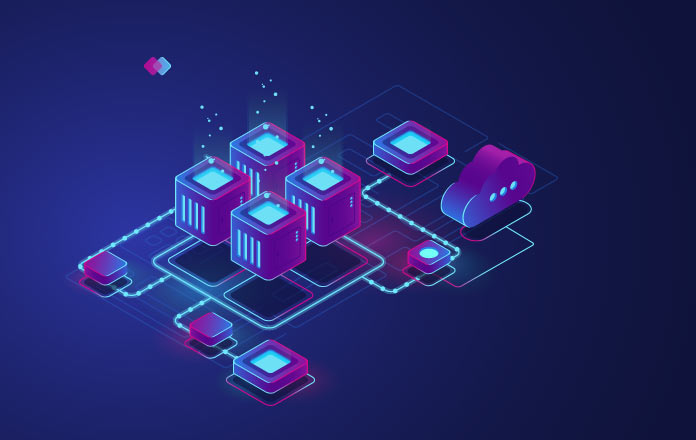The internet has undergone transformative changes since its inception, from the static pages of Web 1.0 to the dynamic and interactive platforms of Web 2.0. Now, the digital landscape is on the brink of another revolution with the emergence of Web 3.0, driven by the integration of blockchain technology. Web 3.0 promises a decentralized, trustless, and more secure online experience, bringing forth a paradigm shift in how we interact with information and services.
Understanding Web 3.0:
Web 3.0, often known as the “Decentralized Web” or the “Semantic Web,” is the next stage of Internet development. Web 3.0, in contrast to its predecessors, seeks to build a more intelligent, networked, and user-focused online environment. One of the key features of Web 3.0 is its emphasis on decentralized technologies, with blockchain playing a pivotal role in achieving this vision.
The Role of Blockchain in Web 3.0:
With decentralization, transparency, and security, blockchain technology—which powers cryptocurrencies like Bitcoin and Ethereum—is the foundation for Web 3.0. In the context of the decentralized web, blockchain enables the creation of a trustless environment, eliminating the need for intermediaries and central authorities.
Decentralization:
As the blockchain is decentralized, no single party can take control of the network. This not only enhances security by eliminating single points of failure but also empowers users by giving them more control over their data and online interactions. With decentralized applications (DApps) running on blockchain networks, users can engage in peer-to-peer transactions without relying on traditional intermediaries.
Read More: Metaverse adds new dimensions to Web 3.0 cybersecurity
Smart Contracts:
Blockchain technology relies on smart contracts that are self-executing agreements with code-defined terms. In the context of Web 3.0, smart contracts automate and enforce agreements, reducing the need for trust between parties. This streamlines processes and reduces the risk of fraud and manipulation.
Data Ownership and Privacy:
Web 3.0 emphasizes giving users control over their data. Blockchain allows users to own their information and ensures a more secure, private data management system. This shift from centralized data silos to decentralized, user-controlled data repositories enhances privacy and reduces the risk of data breaches.
Tokenization:
Tokenization, a concept closely associated with blockchain, involves representing assets or rights as digital tokens. In Web 3.0, tokenization facilitates new economic models and incentivizes user participation. Tokens represent anything from digital assets to voting rights within a decentralized community, fostering a more inclusive and collaborative digital ecosystem.
The Future Implications:
The integration of blockchain into Web 3.0 has far-reaching implications across various industries.
Finance and Banking:
Blockchain’s impact on the financial sector is evident through decentralized finance (DeFi) applications. These platforms allow users to lend, borrow, and trade without traditional financial institutions.
Supply Chain and Logistics:
Blockchain enhances transparency and traceability in supply chains. With a tamper-proof ledger, stakeholders can track the journey of products from manufacturing to delivery, ensuring authenticity and reducing fraud.
Identity Management:
Web 3.0’s emphasis on user-controlled data extends to identity management. Blockchain-based solutions provide a secure and verifiable means for individuals to manage their digital identities, which reduces the risk of identity theft.
Web 3.0, fueled by the integration of blockchain technology, represents a significant leap forward in the evolution of the Internet. The decentralized, trustless nature of blockchain enhances security and privacy and opens the door to innovative economic models and user-centric applications. As we transition to Web 3.0, the Internet becomes more collaborative, transparent, and inclusive.




